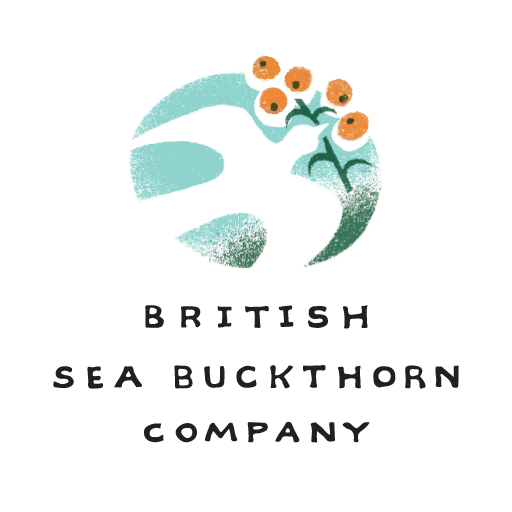Time flies is a ridiculous saying, but as the new year cranks into reality it is clear this is to be a productive year. Fieldwork may be progressing methodically – strimming the last few rows of weeds; planting out new plants, staking those that need straightening. Routine but all important to give the plants a good start to the year.
We continue to have little rain. When planting in my soil I dig out a metre square of top soil, then use a fork to break up the subsoil down another 250/300cm. The soil at that level is now hard as nails – as dry as I would expect in July. To plant new plants into this soil without cracking the subsoil will deprive the plants of any chance of getting tap roots down into the lower water table. This period of lack of rain is like last spring’s extended period of rainfall. These extremes are difficult to manage but if they are a sign of the future, management tools will become an essential.
Last year the german sea buckthorn crop was effected by low rainfall. German sea buckthorn agronomists have for some time being promoting the idea of irrigating sea buckthorn to encourage better growth and yield. I have resisted the idea as I believe pumping plants full of water will only end up diluting the nutrients in the berries. But long dry weather periods – predicted by climate change scientists, are not going to be good for promoting good growth of sea buckthorn plants. So if I have a crop this year and there is finally an income coming from the sea buckthorn, one of the investments it would allow is the building of a small reservoir to collect rain whenever it comes.
As i drive into work in my diesel Peugeot car I do feel a pang of conscience about climate change. I cannot moan about the outcomes if I contribute emissions myself. Alternatives are out there and I really need to question all aspects of developing this business as to how to limit its use of energy and resources.
Limiting resources is looking for the holy grail of sustainability. The concept was brought home to me very acutely this week when with Ben, I visited the Oxford Real Farming conference. The conference focus of sound science, practical thinking, profitability and looking to the future was very apt as farming peers into a post-Brexit future. The one speaker that inspired me hugely was John Letts. A grower from Buckingham who for the past 15 years has been developing his concept of true heritage cereals. This is not the use of modern varieties of traditional cereals that our grandfather’s use to grow. Modern farming has become a monoculture, growing single varieties of single crops. This concept has provided an environment for diseases and pests to selectively find the weakness in our genetic varieties. In consequence our management techniques are being tested to the limit with weeds and pests becoming resistant to chemicals.
John’s concept has takes mixed sources of old and even ancient varieties of cereals and mixes then all into one crop. This creates a unique and wide genetic diversity which pests and diseases will not be able to grapple with. The yield is not huge at around 1.25 tons per acre, but then the inputs are negligible. the plants scavenge what they can from the soil.Weeds are allowed to proliferate, but these old varieties grow tall and above them. This length of straw has been bred out of modern varieties. At a time when we are looking to incorporate more organic matter into the soil in order to improve soil health this tall cereal crop provides for this. As a conventional farmer I would expect our fields to deliver 4 tons to an acre. Accepting a yield drop of 60-70% sounds like economic madness. But what John’s crop loses in quantity it is made up for in nutritional quality. This crop is not about feeding the world but as a crop that produces high quality food from minimal resources this is my equation of a truly sustainable crop.
This heritage cereal presentation followed one that focused on whether organic food really offers a health benefit over a conventional crop. The principle comment I took away from this was that high yield – not unsurprisingly, dilutes the nutrient concentration and thereby nutritional quality. What does this mean for Devereux farm?
For farming to continue profitably we need to find ways of reducing fertiliser and pest/disease control costs. Less cultivations equates to less global emissions – vital in my view. At a time when the President elect of America is declaring himself a climate change sceptic I feel it is all important to find ways to reduce our impact on the environment.

thanks for your complementary blog re John letts . I forwarded it to John. I was also part of the talk, Bread for Life and the economics of growing heritage cereals.